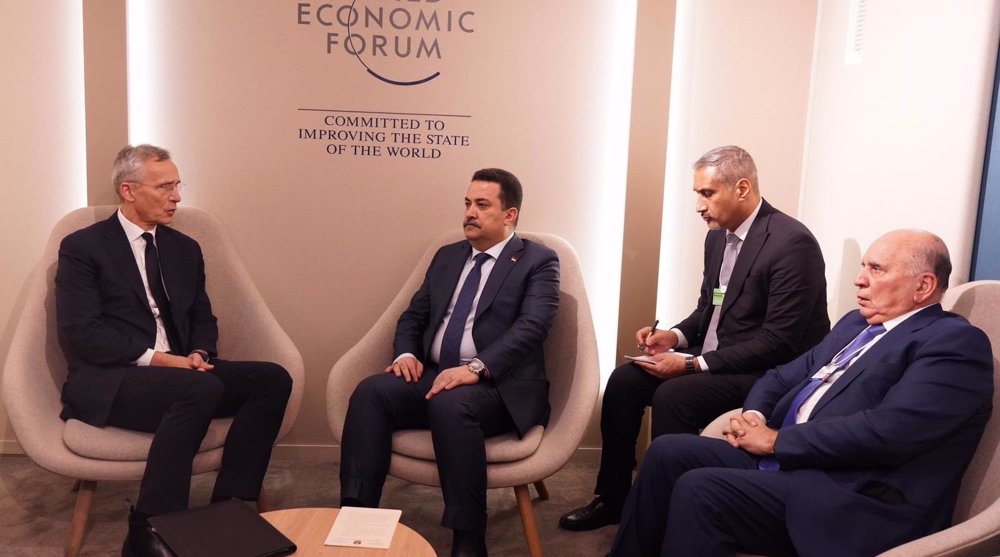Iraqi Prime Minister Mohammed Shia’ al-Sudani says the Baghdad government has outlined plans aimed at ending the presence of US-led foreign military forces in the Arab country.
Sudani made the remarks during a meeting with Secretary General of the North Atlantic Treaty Organization (NATO) Jens Stoltenberg on the sidelines of the World Economic Forum in the Swiss city of Davos on Wednesday.
He went on to say that “Iraq is still open to cooperation with the coalition member states in the fields of supply of military equipment and training within the framework of bilateral relations.”
Stoltenberg, for his part, commended the Iraqi government’s efforts and measures to expand the capabilities of security forces, especially as to prosecution of the remaining members of terror groups and restoration of security and stability.
He also expressed NATO’s eagerness for increased joint cooperation with Baghdad in various security spheres.
Iraq adopted the law to expel foreign forces after Washington’s assassination of top Iraqi and Iranian anti-terror commanders four years ago.
General Qassem Soleimani, commander of the Quds Force of Iran’s Islamic Revolution Guards Corps (IRGC), and Abu Mahdi al-Muhandis, the second-in-command of Iraq’s Popular Mobilization Units (PMU), were martyred along with their comrades in a US drone strike that was authorized by then-president Donald Trump near Baghdad International Airport on January 3, 2020.
The two iconic anti-terror commanders are greatly admired for their instrumental role in fighting and decimating the Daesh Takfiri terrorist group in the region, particularly in Iraq and Syria.
A Sunday statement from the Iraqi parliament said Deputy Speaker Mohsen al-Mandalawi had stated the previous day that the bill adopted in January 2020, which requires the government to end the presence of all US-led foreign military forces in the Arab country, is “a fundamental and irreversible piece of legislation” and will not change because it enjoys popular support.
Mandalawi called on the Iraqi government to implement the legislation and to expand the capabilities of Iraqi security forces instead of relying on foreign troops to fight terror groups.




